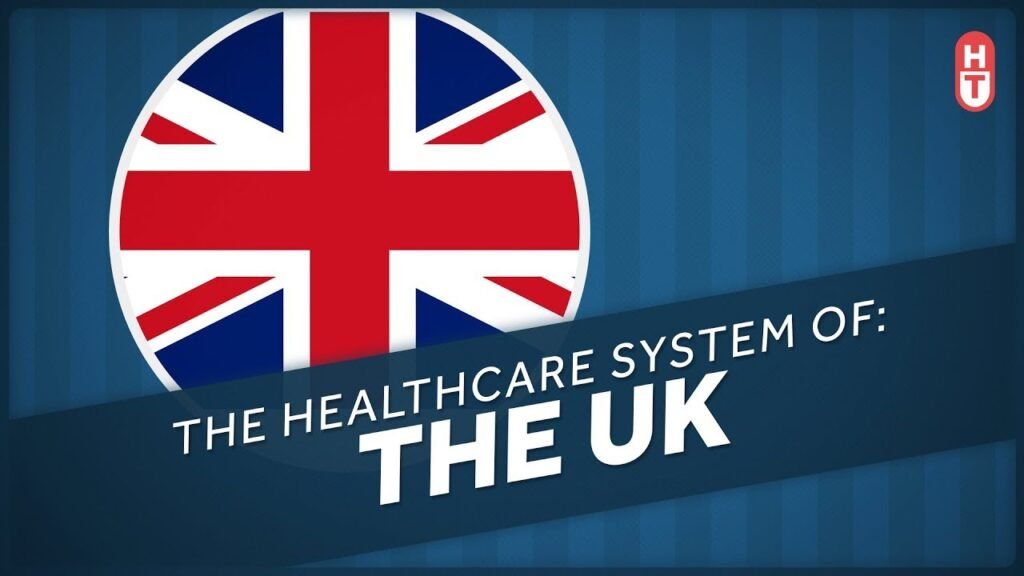
The National Health Service (NHS), the United Kingdom’s universal health care program, is well-known across the world for its dedication to offering top-notch care to all citizens. The National Health Service (NHS) was founded in 1948 and is supported by taxes. It offers free point-of-care healthcare for a variety of conditions, including hospital care, primary care, and specialty therapies. This blog examines the salient aspects of the universal health care system in the United Kingdom and its effects on the populace.
Contents
History and Evolution
With the founding of the Ministry of Health in 1919, the idea of universal health care in the UK was first proposed early in the 20th century. However, Health Minister Aneurin Bevan would not formally establish the NHS until the end of World War II. The National Health Service (NHS) was established with the goal of offering everyone, regardless of financial situation, comprehensive, high-quality care.
Structure of the NHS
NHS England, NHS Scotland, NHS Wales, and Health and Social Care in Northern Ireland are the four primary branches that make up the NHS. Each branch is in charge of providing healthcare services in its designated area, and the devolved governments decide on funding and policy.
Services Provided
General practitioner (GP) services, hospital care, mental health services, and emergency care are just a few of the many services offered by the NHS. Most treatments and drugs are funded by the NHS, so patients can access these services for free.
Primary Care
The foundation of the NHS is primary care, with general practitioners (GPs) acting as patients’ initial point of contact. GPs offer a variety of services, such as managing chronic disorders, treating common illnesses, and sending patients to specialists when necessary.
Hospital Care
NHS hospitals, which offer a variety of services like emergency care, surgery, and specialist therapies, provide hospital care in the United Kingdom. Patients are referred to hospitals via the emergency room or by their general practitioner.
Specialized Treatments
In addition, the NHS offers specialist care for a variety of illnesses, such as mental health issues, heart disease, and cancer. These therapies are given by specialized teams and are customized to each patient’s needs.
Funding and Financing
The National Health Service (NHS) is primarily financed by income tax and national insurance contributions. The government allots funds to the NHS, which are then used to finance both the ongoing operations of the health service and investments in novel therapies and technology.
Challenges and Future Directions
Despite receiving a lot of praise for its dedication to delivering universal health care, the NHS is facing a number of difficulties, such as a scarcity of workers, growing prices, and expanding demand. The NHS is putting in place a number of changes to address these issues, including raising funding, enhancing efficiency, and making investments in cutting-edge technology.
Conclusion
The United Kingdom’s dedication to provide all citizens with high-quality care is demonstrated by its universal health care system. The NHS is nevertheless a source of pride for the UK and an inspiration to other nations aiming to create universal health care systems, although confronting difficulties.-
Frequently Asked Questions About the United Kingdom’s Universal Health Care System
Q: What is the NHS?
A: In the UK, the publicly funded healthcare system is known as the National Health Service, or NHS. It offers a comprehensive spectrum of free healthcare services at the point of need, such as emergency treatment, mental health services, hospital care, and primary care.
Q: How is the NHS funded?
A: The National Health Service (NHS) is primarily financed by income tax and national insurance contributions. The government allots funds to the NHS, which are then used to finance both the ongoing operations of the health service and investments in novel therapies and technology.
Q: Are all healthcare services free under the NHS?
A: The majority of GP services, hospital care, and the majority of treatments and prescriptions are all free at the point of use when using the NHS. However, some treatments, like prescription drugs, dental care, and eye care, could come with a cost.
Q: How do I access NHS services?
A: The first point of contact for the majority of healthcare needs is a local GP practice, with which you can register in order to access NHS services. Your General Practitioner can connect you with the right resources if you need inpatient care or specialist treatments.
Q: Can I choose my own healthcare provider under the NHS?
A: Most of the time, you have a choice in the hospital and general practitioner office where you are treated. However, elements like service availability and geography could restrict your options.
Q: Are there waiting times for NHS services?
A: There could be waiting periods for non-urgent treatments and operations, even though the NHS strives to offer quick access to healthcare services. The resources that are available to you and the severity of your ailment will determine how long you have to wait.
Q: Can I use private healthcare services alongside the NHS?
A: Yes, in addition to the NHS, you have the option to use private healthcare providers. Nevertheless, utilizing private healthcare will not result in the loss of your NHS entitlements, and you will still be eligible to receive treatments from the NHS.
Q: How is the NHS adapting to meet the healthcare needs of the population?
A: In order to adapt to the population’s changing healthcare demands, the NHS is always adapting. This entails making investments in cutting-edge medical equipment and therapies, expanding service accessibility, and putting policies into place to raise the standard and efficacy of healthcare.